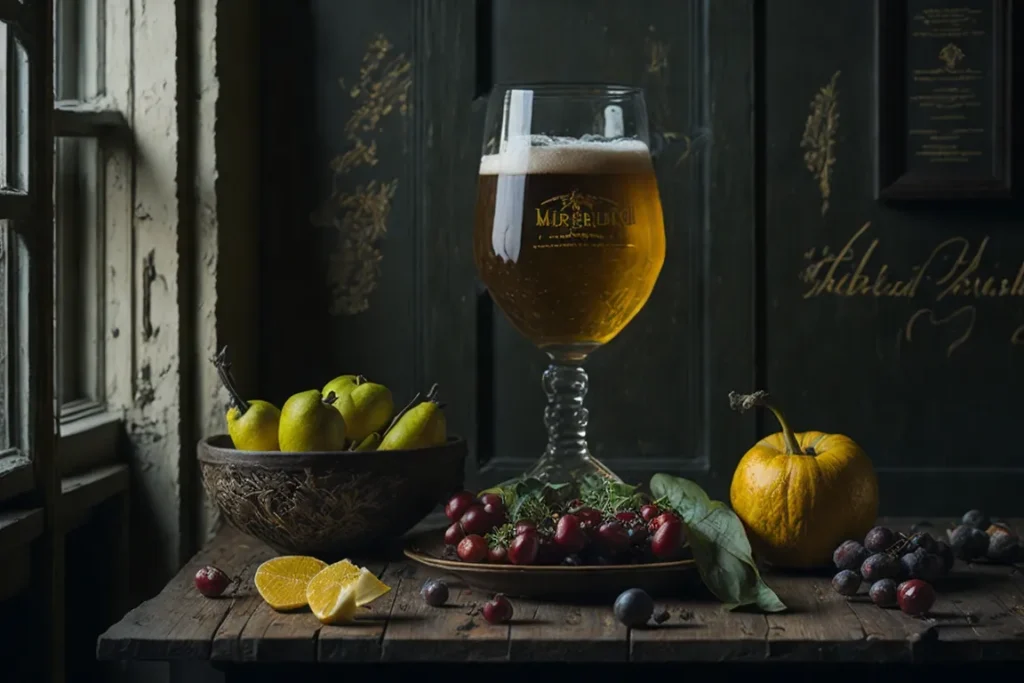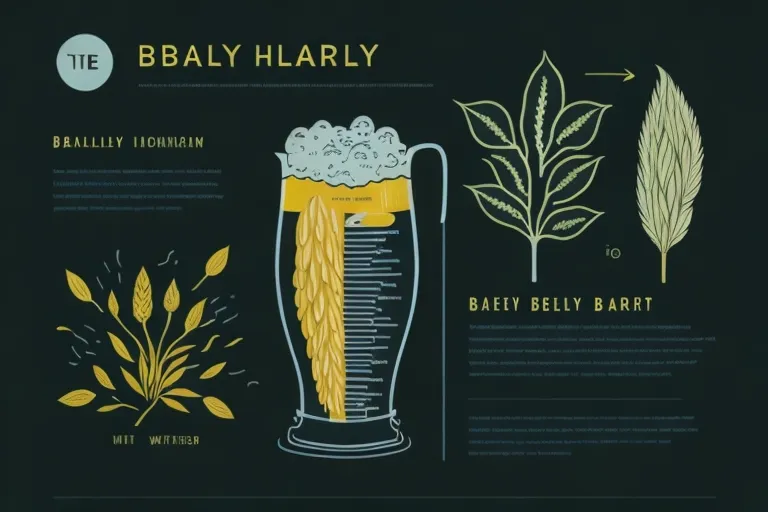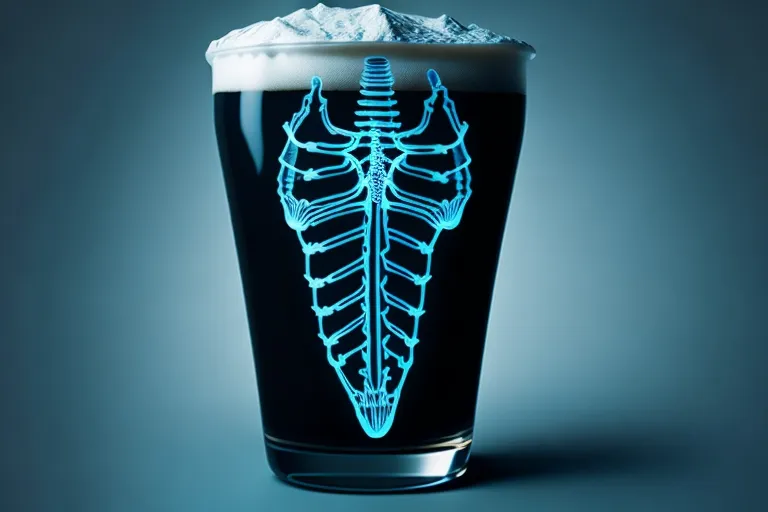Beer is a beverage savored and relished across the globe. From casual social gatherings to high-profile events, the frothy delight has its well-deserved place. It’s a drink synonymous with joy, camaraderie, and often, the perfect end to a long day. Yet, in the age of health consciousness, many are reevaluating their drinking habits. This leads us to explore the surprising link between beer and health benefits, and how moderate consumption may play a part.
Table of Contents

Beer, when consumed responsibly, can actually harbor numerous health benefits. But before we delve into the specifics, it’s crucial to understand that the key term here is beer moderate consumption. Overconsumption of beer, like any alcoholic beverage, can lead to severe health risks. But, when consumed in moderation, beer can contribute to a healthier lifestyle. From potentially boosting cardiovascular health to providing essential nutrients, the perks of beer are more than just its robust flavor and refreshing fizz. In the upcoming sections, we’ll break down these benefits, the risks associated with beer overconsumption, and tips for healthy beer drinking.
The Brewing Process: How Beer Comes to Be

Understanding beer: a brief overview of the brewing process
Beer, in its simplest form, is an intricate symphony of a few basic ingredients: water, barley, hops, and yeast. The alchemy of these elements through brewing results in a drink that’s been cherished since ancient times. The brewing process begins with malting, where barley grains are soaked in water and allowed to germinate. Once germinated, they are dried and crushed to create malt.
The malt is then steeped in hot water through a process called mashing. This breaks down the complex sugars in the malt into simpler ones. The liquid from this process, known as wort, is then boiled with hops to add flavor and aroma. After this, the wort is cooled and yeast is added to begin the fermentation process. The yeast feasts on the sugar in the wort, producing alcohol and carbon dioxide. Once fermentation is complete, the beer is aged, filtered, and carbonated before it’s ready to be enjoyed.

The major ingredients: barley, hops, water, and yeast
Each ingredient in beer contributes to its unique character and flavor. Barley, a type of cereal grain, is the backbone of beer, providing the sugars needed for fermentation. Hops, a flower, are used to add bitterness, balance out the sweetness of the malt, and impart a range of flavors and aromas. Water, making up about 90-95% of beer, acts as the medium in which all other ingredients interact. Lastly, yeast is a microorganism that consumes the sugar in the wort, turning it into alcohol and CO2, and creating the range of flavors that make each beer unique.

Different types of beer: lagers, ales, stouts, and more
From lagers to ales, stouts to IPAs, the world of beer is diverse and vast. Each type is a testament to the versatile nature of beer, its wide array of flavors, and its universal appeal. Lagers, known for their crisp and clean flavor, are typically fermented and conditioned at lower temperatures. Ales, on the other hand, are fermented at higher temperatures, resulting in a wide variety of flavors and styles, from fruity and spicy to rich and malty. Stouts are dark, rich beers with flavors of coffee and chocolate, whereas IPAs (India Pale Ales) are hoppy beers with a strong bitter edge. Each of these types caters to different palates and moods, contributing to beer’s universal allure.
The Health Benefits: Beer’s Positive Impact
Heart Health: Beer and Your Cardiovascular System
Beer’s potential impact on heart health
Cardiovascular health is a key area where beer health benefits might come into play. Moderate beer consumption has been associated with a lower risk of developing heart disease, compared to both heavy drinking and abstaining. How so? It’s thought that the alcohol and antioxidants in beer, specifically dark ales and stouts, might aid heart health by increasing good cholesterol (HDL) and reducing the likelihood of blood clots.

Scientific studies backing these claims
A number of studies reinforce this idea. One study published in the Journal of the American Heart Association suggested that moderate beer drinking could lower the risk of heart disease by up to 30%. However, these results do not act as a prompt to start drinking beer for its health benefits. It’s more about realizing that moderate consumption of beer, as part of a balanced lifestyle, might have certain advantages.
The Nutritional Profile: Uncovering the Goodness in Beer
Nutritional value of beer: vitamins, minerals, and antioxidants
Beer is often misperceived as ’empty calories’. But when you dig a bit deeper, you’ll find that beer actually carries a decent nutritional profile. Beer contains essential nutrients such as vitamins (B vitamins like folate, niacin, riboflavin, and B12), minerals (silicon, potassium, and magnesium), and antioxidants (phenols). While it’s no substitute for a balanced diet, these nutrients might contribute to the overall beer health benefits.

The role of these nutrients in maintaining good health
The vitamins in beer play a crucial role in energy production, DNA repair, and maintaining healthy skin and blood cells. Minerals like silicon contribute to bone and connective tissue health, while antioxidants have been linked to a reduced risk of chronic diseases.
Bone Health: The Unlikely Connection
Beer and bone density
In line with the theme of surprising beer health benefits, moderate consumption might also boost bone health. Silicon, found in beer, is essential for maintaining bone density and health. Silicon increases the absorption of calcium, which in turn helps in maintaining strong and healthy bones.

The science behind this link
A study published in the American Journal of Clinical Nutrition found a positive correlation between moderate beer consumption and bone density. However, like any other health benefits of beer, these effects are seen only with moderate and responsible consumption.
Mental Well-being: Beer’s Role in Stress Management
The impact of beer on mental health
Beer, enjoyed in moderation, could have a place in stress management. The process of unwinding with a beer can be a stress-relieving ritual for some. Additionally, the social aspect of sharing a beer with friends or loved ones can contribute to overall mental well-being.

Moderation is key: the difference between use and misuse
However, it’s crucial to distinguish between moderate use and misuse. While beer can be part of a balanced lifestyle, reliance on it for stress management or mood alteration can lead to overconsumption and associated health risks.
Digestive Health: Aiding Your Gut
Beer’s potential role in aiding digestion
Beer might also play a role in digestive health. The alcoholic beverage contains dietary fiber and a variety of phytochemicals that can stimulate gastric acid secretion, aiding digestion.

The probiotic potential of beer
Certain types of beer, especially craft and traditional beers, can have probiotic potential. These beers undergo fermentation that may promote the growth of beneficial gut bacteria, contributing to a healthy gut microbiome. This, however, is an emerging field of research and further studies are required to fully substantiate these claims. Once again, the key to reaping any potential health benefits of beer lies in beer moderate consumption.
The Risks: The Downside of Overconsumption
Physical Health Risks: What Happens When You Overindulge?
Beer overconsumption risks are significant and wide-ranging. Heavy drinking can lead to numerous health problems, including liver disease, heart disease, stroke, and various types of cancer. Additionally, consuming beer excessively can also lead to obesity due to the high caloric content, as well as pancreatitis, a dangerous inflammation of the pancreas.

Mental Health Risks: The Impact of Excessive Drinking
Overconsumption of beer can have detrimental effects on mental health as well. It can lead to a range of problems, from alcohol-induced anxiety and depression to more serious conditions like alcohol dependence or addiction. Additionally, heavy drinking can result in cognitive impairment and potentially contribute to the development of mental disorders.
Social and Economic Consequences
Beyond health implications, beer overconsumption risks also include social and economic consequences. These may include relationship issues, work-related problems such as decreased productivity, and even legal troubles related to irresponsible behavior while intoxicated.
Responsible Drinking: Making Healthy Choices
Understanding Moderate Consumption
When it comes to healthy beer drinking, moderation is key. The Centers for Disease Control and Prevention (CDC) defines moderate drinking as up to one drink per day for women and up to two drinks per day for men. It’s important to understand these guidelines and adhere to them to mitigate any potential health risks associated with alcohol consumption.
Tips for Healthy Beer Drinking

Here are some tips for practicing healthy beer drinking:
- Know your limits: Understanding your personal limits is vital. Always be aware of how much you’re drinking and how it affects you.
- Choose quality over quantity: Opt for beers that you genuinely enjoy and take the time to savor them. This encourages mindful drinking rather than drinking for the sake of it.
- Hydrate: Alcohol dehydrates your body. Drinking a glass of water for every beer you consume can help maintain hydration levels and prevent hangovers.
- Don’t drink on an empty stomach: Consuming alcohol on an empty stomach can lead to faster intoxication. Having a meal before you drink can help slow the absorption of alcohol.
- Avoid binge drinking: Consuming a lot of alcohol in a short span is particularly harmful. Spread out your drinking, and always remember – moderation is key!
Conclusion
Understanding the complex relationship between beer and health can help you make informed decisions about consumption. When enjoyed in moderation, beer offers some surprising health benefits – from heart and bone health to potential advantages for your gut and mental well-being. However, it’s essential to remember that beer overconsumption risks are severe and can heavily outweigh these benefits. Therefore, practicing healthy beer drinking is crucial to enjoying beer as part of a balanced lifestyle.
FAQs
-
Is beer healthy in moderation?
Yes, beer can be part of a healthy diet when consumed in moderation. It’s important to understand that “moderation” generally means up to one drink per day for women and up to two drinks per day for men, according to the CDC. Moderation is key because, while moderate beer consumption has been linked with some health benefits (like potentially promoting heart health and aiding digestion), excessive beer drinking can lead to various health problems, including liver disease, heart disease, and mental health disorders. Remember, beer moderate consumption should be part of a balanced lifestyle that includes a healthy diet and regular exercise.
-
Can beer help prevent heart disease?
Research suggests that moderate beer consumption might help prevent heart disease. This is largely due to the presence of alcohol and antioxidants in beer, which can increase ‘good’ cholesterol (HDL) and decrease blood clot formation. However, these benefits are associated with moderate beer drinking and not heavy drinking, which can actually increase the risk of heart disease. As always, if you have any concerns about heart health, it’s important to consult a healthcare professional.
-
What are the nutritional values of beer?
Beer is more nutritionally dense than you might think. It contains a variety of vitamins (B vitamins in particular), minerals (like silicon, potassium, and magnesium), and antioxidants. These nutrients have various roles in maintaining good health. For instance, B vitamins help with energy production, DNA repair, and maintaining healthy skin and blood cells. Meanwhile, minerals like silicon contribute to bone health, and antioxidants could help reduce the risk of chronic diseases. However, it’s important to note that beer is not a substitute for a balanced diet.
-
Does beer contribute to weight gain?
Beer can contribute to weight gain if consumed excessively, as it’s relatively high in calories. Drinking beer regularly and in large quantities, combined with a lack of physical activity, could indeed lead to weight gain and obesity. That’s why it’s crucial to practice healthy beer drinking, which includes monitoring your intake and pairing it with a balanced diet and regular exercise.
-
Can beer improve kidney health?
Some studies suggest that moderate beer consumption might lower the risk of kidney stones, thanks to its high water content and diuretic properties. The presence of compounds such as hops may also help slow the release of calcium from bones, which could otherwise accumulate in the kidneys as stones. However, like all potential beer health benefits, this is linked to moderate, not heavy, consumption.
-
Does beer consumption have any benefits for the skin?
Beer contains certain vitamins and antioxidants that may benefit skin health. For example, the B vitamins in beer can help prevent skin dehydration, improve elasticity, and potentially enhance skin complexion. Furthermore, the antioxidants in beer fight free radicals, which can help slow down the aging process. However, excessive beer consumption can have the opposite effect, causing dehydration and inflammation that could harm your skin over time. As with all things beer-related, moderation is key.

